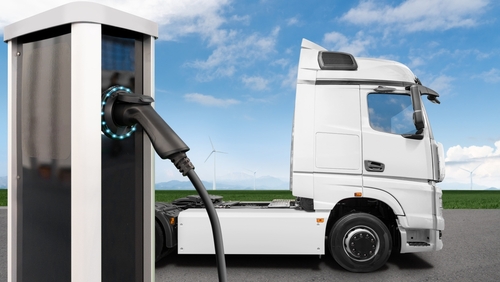
A new Request for Information from the U.S. Department of Transportation’s Federal Highway Administration seeks input from stakeholders on the technology and infrastructure needs for medium- to heavy-duty electric vehicle (EV) charging stations.
In partnership with the Joint Office on Energy and Transportation, the FHWA said they are looking for more information about the unique needs for medium- and heavy-duty EV charger and station needs, as well as medium- and heavy-duty EV charging patterns; charging technology and standardization for those vehicles and the workforce, supply chain, and manufacturing to support charging DOT class four through eight EVs, including delivery vans, school buses, semi-tractor trucks, fire engines, dump trucks and tour buses.
“The electrification and sustainable buildout of our nation’s fleets is a critical priority for our nation’s sustainable transportation goals, to support the movement of goods and to connect communities,” Acting Federal Highway Administrator Kristin White said. “Getting information from the industry and communities impacted by future regulations is essential to helping the federal government understand how to support investments in vehicles like buses, trucks, vans, and larger vehicles to help us all move towards our Net Zero emissions goals.”
Officials said the RFI will inform government agencies, including the Environmental Protection Agency, on how to support development and build out of the national EV charging network, while balancing the needs of evolving technology and infrastructure investment in freight and multimodal transportation systems.
“Medium- and heavy-duty vehicle electrification is a crucial component of decarbonizing freight and reducing emissions that negatively affect health in many communities,” Gabe Klein, Executive Director of the Joint Office of Energy and Transportation, said. “This RFI will build on the National Zero-Emission Freight Corridor Strategy released by the Joint Office earlier this year and will gain insights from stakeholders to continue to accelerate momentum toward a national fueling network for zero-emission freight.”
RFI responses should be filed on the Federal Register notice on or before Nov. 12, 2024.